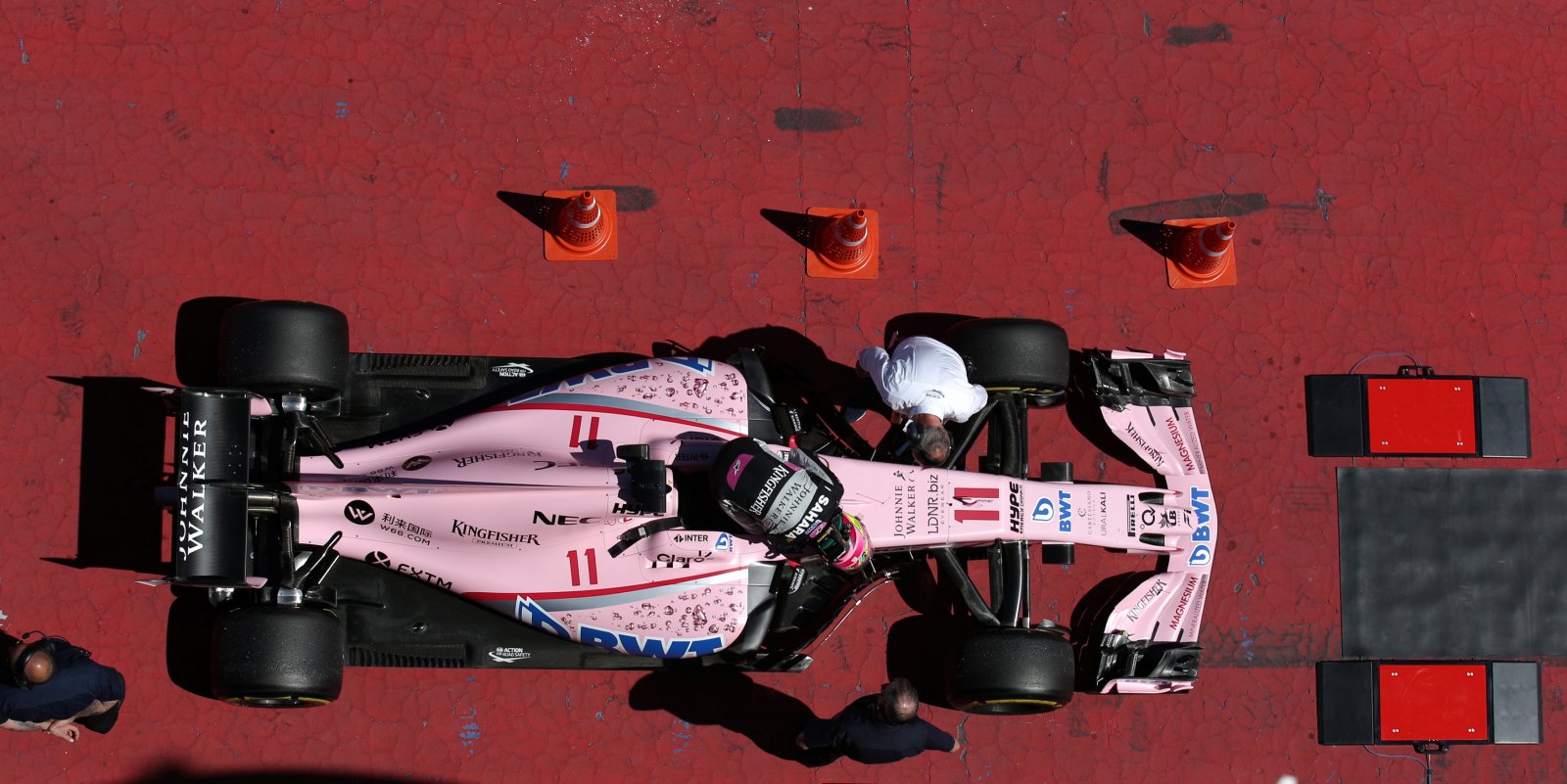Symbiotic relationships between sports teams and media outlets hint at bigger questions
Under new owners Liberty Media, Formula One has begun to embrace social media and digital progression much more than it ever has before. This season has seen the lifting of a ban on highlights and footage of the paddocks disseminated by anyone other than the official broadcaster. That’s made the sport a more naturally engaging one for a younger audience.
The transition of F1 from a sport with an outdated social media presence to one which is much more friendly to its fans – or potential fans – consuming content on digital media is of a similar trajectory to The Sport Bible’s transition from a website specialising in viral hits to a more mainstream brand.
This week, the online publisher – and part of the LADBible – announced they had entered into a partnership with F1 team Sahara Force India which would include Sport Bible branding on the team’s distinctive pink car.
The announcement also hinted at the possibility that The Sport Bible would also be bringing its readers and other online fans exclusive content with the F1 team. The website announced, “We look forward to bringing you more from the Sahara Force India team and their drivers in the near future.”
That suggests that the F1 team is hoping to grow their following amongst a digitally-native online audience as the sport becomes more aware of how its audience now consumes its content, but it is also an interesting step from the publisher.
Recently, The Sport Bible has attempted to buy up the rights to live sport, streaming UK table tennis on Facebook Live and attracting a large audience in the process. It looks as if they and their 25m Facebook likes are looking to go in a more legitimate, mainstream direction.
The Sport Bible will, presumably, get exclusive content which they can serve to their followers, and in return, Sahara Force India will reach a new audience, and one that may start to get more into F1 without actually having a team to follow already. It’s a symbiotic relationship – The Sport Bible gain extra legitimacy and advertising, whilst Sahara Force India get their foot in the digital door in away most F1 teams haven’t really managed to do just yet.
But it does pose a question for other publishers in the sector, though: are they a news organisation, or something more like a media company? The difference is fairly vital, too, something that goes far beyond this particular sponsorship: how are a news organisation supposed to report fairly and objectively on a sports team they sponsor, for example?
It might be a brave new world for online publishers. As they seek to enter into the world of sponsorship in order to promote their own online content, just how far away are websites and blogs from news outlets?
About author
You might also like
SPORTEL 2021: Day One Recap
This year’s prestigious SPORTEL convention kicked off in sunny Monaco today, welcoming a host of familiar faces as well as plenty of new ones. Doors opened at 8:30am with businesses
Six Founding Riders Set To Bring The Vision Of The UCI Track Champions League To Life
Olympic Champions, UCI World Champions and World Record holders join the new track cycling competition debuting in November 2021 The UCI Track Champions League is delighted to announce that six
Sports related spending to soar this summer as pre-pandemic life resumes
New insights from eBay Ads UK reveal the potential for brands to engage with an excited but nervous nation as sports events get back on track As pubs and indoor








